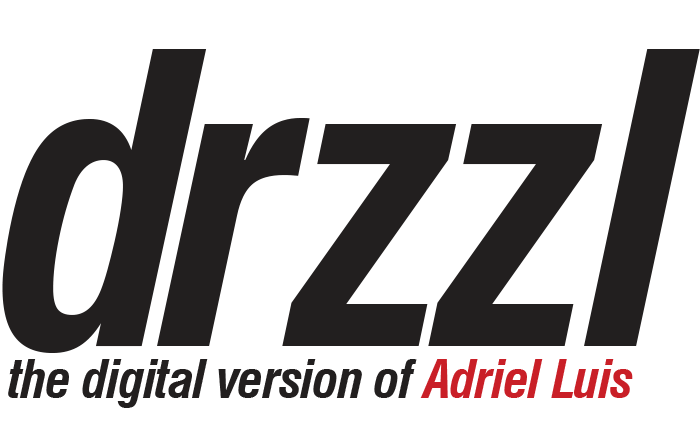yesterday i had the honor of moderating a convening for the collective future of north america’s chinatowns. it was presented by wing on wo, a family retailer of porcelain wares tucked in nyc chinatown. w.o.w. is one of the neighborhood’s longest-standing establishments, and whenever i visit mei, her dad gary, and their elders, i glimpse the decades of labor, dedication, and persistence that went into maintaining, among other things, a site of familiarity for my sporadic visits to new york. the store is filled with a delicate array of bowls, teacups, and fish-shaped-vases that have cycled through over time, many of which are older than me.
i left yesterday’s program thinking about my grandfather with an intensity that i haven’t afforded him since he passed away in 2015. “my gonggong used to have a photo studio in sf chinatown,” i mentioned to panelists. it felt like a stretch, a flimsy offering of relatability that was equally an admission that my intimacy with chinatown is two generations removed. i grew up in the suburbs, lost my tongue by kindergarten, and my relationship with gonggong became a syndication of me asking “lay deem ah?” (canto for wassup), him grunting without turning from the television, and me responding “gumma ho lah” (canto for that’s wassup) before my grandma interrupted with some sliced oranges that were definitely worth whatever genetic modification was needed to make them that sweet. “ho teem gah!”
as is the way that family stories go, gonggong’s chinatown studio appeared out of thin air. whatever blood, sweat, or tears may have transpired between transporting his wife and children from hong kong to america, and opening the studio of his dreams, is glossed over with “and then.” my mom was a teen when they immigrated, and gonggong was a strict and insular father, so i imagine that there aren’t many details she could divulge about how he found his community in san francisco; how he may have scouted sites throughout clay street; who may have finally hooked him up with a walk-up expansive enough to house a room for shooting, a dark room, a kitchen, and a bathroom; how he got all those cameras and lights and backdrops.
(a few christmases ago, my mom revealed that the family was actually supposed to move to chicago, but there was a long layover at sfo and gonggong was so restless that he went to chinatown. “and then we missed the flight. and then i met your dad. and then you were born.”)
i grew up with gonggong’s studio as a matter of fact, among the countless matters of fact that a kid just accepts as his reality. when i was young, it was just “get dressed up, we’re gong to san-pan-see to take pictures at gonggong’s today.” those trips are now encapsulated in mental snapshots of the bay bridge from the backseat of the family mazda with priscilla chan in the speakers; dad dropping mom off and circling the block until she hopped back in the car with a big pink paper box stacked with egg tarts; walking up the narrow stairwell lined with the familiar faces of strangers frozen in sun-faded prints; the mysterious room with red lighting and a funny smell; the dingy bathroom with the eternally-dehydrated blue bar of soap.
i don’t remember posing for any photos – those memories have been hijacked by the photos themselves, and my assumptions of what i must have been feeling based on my facial expressions on them. i do remember once entering the studio and gonggong excitedly showing me a pair of life-sized ernie and bert muppets that he hand-stitched. i had learned enough to respect my elders that i don’t think i said “doesn’t really look like them,” but i must have conveyed it by doing something like saying “oh, cool” and then walking away.
gonggong was an artist, and sometimes i tell people that my creativity was passed down from him. if that’s true, he also passed down his aching for recognition. he was what people in america would call “a photographer’s photographer,” but ended up frustratingly living the life of what people in america would call “a migrant craftsman.” in the same way that people don’t typically consider that the hands that made their dim sum might belong to an aspiring beard award winner, people went to gonggong’s studio expecting nothing more and nothing less than a finger to snap the shot. he was vexed by the fact that his artistic practice was reduced mostly to generating passport photos. be became increasingly short with customers who prioritized pricing and speed over lighting and depth. to his chagrin, people became less understanding of why it would take so long to get their photos back. and then 1-hour photo became a thing. and then his studio closed.
one of my fondest memories with gonggong is in 2010, following my first trip alone to china, where i learned to use my new canon rebel. by then, gonggong had long-abandoned his dreams as a photographer, and had even garnered some local praise for his calligraphy work. but his friends – craftsmen artists who carved stamps from stone and dipped brushes in inkwells – had mostly passed away. gonggong had stopped leaving his apartment in the richmond. he always had sunglasses on no matter how dim. who cares about the lighting anyway?
i excitedly scrolled through the tiny lcd screen to show him my shots of shanghai’s alleyways, the longsheng terraces, the mountains lining the yangzi. the photos were probably terrible, by a photographer’s standards, and i imagine his silence as either refrain from criticizing his doe-eyed grandson, or complete resignation and lack of interest. but he removed his sunglasses, so at least there’s that.
by the time i got my job at the smithsonian, he was so sick and so over with life that language was only one barrier among many to communicating my accomplishment to him. when he died two years later, i wept bitterly and wanted to proclaim that i’d fulfill his dreams of our family being recognized in the arts, but was faced with the irony of existing in a world where recognition now holds its currency on instagram. (i mean, if he thought walgreens was the death of photography…)
the story of my gonggong is about dreams that were resilient through the tribulations of immigration, but that couldn’t withstand the relentlessness of technology and convenience. he was willing to uproot from his motherland, learn a new language, stomach the bureaucracies of running a business – but when it came to bending his artistic practice for a fickle consumer base, he wouldn’t budge. in my line of work and with my digital diet, i’ve become so deep in the church of adaptation/disruption/nimbleness/pivoting that only lately i’ve begun questioning what about my own practice is unflinching, uncompromising, what won’t budge.
when i think deeply about gonggong’s last years, i realize that – as heartbreaking as it was for him – it’s not really the closing of his studio that was his last straw. it was the tragically inevitable dwindling of his circle of friends, the slow vanishing of the community that made him a part of chinatown even when he no longer had an address there. i guess he passed that down to me too – without my community, what would be worth writing for? what would be worth living for?
i also realize that he couldn’t have been much younger than me when he first stepped off the plane, introduced himself to the people of chinatown, and then became one of those people himself. which helps me understand that his dreams might have been less about artistic recognition and more about having something of substance to offer his community that he held so dear. and that it’s not too late. because some things just take a long time to develop.


